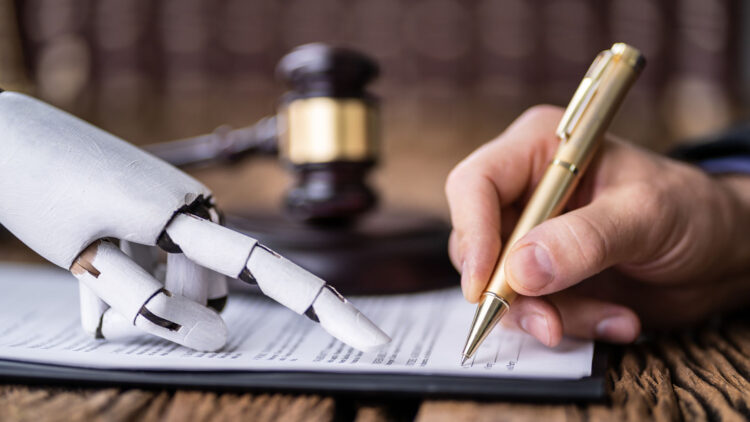A Maryland court has ordered a family lawyer to complete mandatory training on the ethical use of artificial intelligence (AI) after the attorney submitted court documents containing numerous inaccuracies generated by ChatGPT. The case, involving a custody dispute, highlighted the perils of using AI tools without proper oversight and verification.
The attorney, who was representing a mother in a divorce and custody matter, filed legal briefs that included several citations meant to support his arguments. These references, which are critical in legal writing, were later found to be either non-existent or in direct contradiction to the claims made. The ruling from the Maryland Court of Appeals emphasized the importance of due diligence in legal practice, stressing that attorneys must verify all information provided, regardless of its source.
In her opinion, Judge Kathryn Grill Graeff stated, “It is unquestionably improper for an attorney to submit a brief with fake cases generated by AI.” She noted that the attorney had relied too heavily on a law clerk who utilized ChatGPT for drafting and editing the brief, without adequate involvement in the verification process. The court determined that the attorney did not fulfill his responsibility to ensure the integrity of the legal documents submitted.
The court’s findings revealed that the law clerk, who was not a licensed attorney, had not read the generated cases, leading to significant errors. This situation illustrates a broader concern within the legal community regarding the use of AI tools. While these technologies can assist with drafting and brainstorming, they cannot replace the essential judgment and verification roles of legal professionals.
Judge Graeff further emphasized that a competent attorney must review all legal citations to ensure they accurately represent the cases they reference. She cautioned against blindly accepting AI-generated content, which can sometimes produce misleading or entirely fabricated information.
As a consequence of these findings, the court mandated the attorney to complete “legal education courses on the ethical use of AI” and required his firm to implement strict verification protocols. These measures aim to ensure that all citations and legal authorities are thoroughly checked before submission. The court also referred the case to the Attorney Grievance Commission for potential further sanctions.
This ruling serves as a critical reminder for legal practitioners about the importance of maintaining professional standards in the age of technology. The court made it clear that while AI can be a valuable tool, it remains the attorney’s responsibility to ensure the accuracy and reliability of the information presented in legal proceedings.
As AI continues to play a larger role in various fields, including law, this case underscores the need for caution and thoroughness. Legal professionals are encouraged to embrace technology, but they must do so with a critical eye, ensuring that human oversight remains central to their practice.
